Please activate JavaScript in your browser to use all interface options.
Rosneft Concludes Arctic Field Research Season
20 November 2024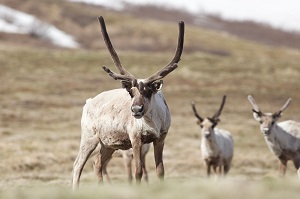
Specialists from Rosneft’s Arctic Research Centre, together with scientists from the country’s leading research institutes, summarised the results of the first field season of the Tamura Corporate Biodiversity Conservation Programme.
The special event was attended by representatives of the Company, scientists from the A.N. Severtsov Institute of Problems of Ecology and Evolution of the Russian Academy of Sciences (IPEE RAS), the Siberian Federal University (SFU) and specialists from the Biotechnology Campus.
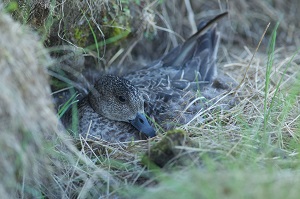 Rosneft pays special attention to environmental issues and biodiversity conservation, implementing the most extensive Arctic research programme since Soviet times. The aim of the new Tamura research programme, launched in 2024, is to update information on the status of the region’s key animal species, including their bioindicators. The results will allow scientists to draw conclusions about the state of the ecosystems and develop measures to conserve biodiversity in the Arctic region. There will be ten expeditions in total over four years.
Rosneft pays special attention to environmental issues and biodiversity conservation, implementing the most extensive Arctic research programme since Soviet times. The aim of the new Tamura research programme, launched in 2024, is to update information on the status of the region’s key animal species, including their bioindicators. The results will allow scientists to draw conclusions about the state of the ecosystems and develop measures to conserve biodiversity in the Arctic region. There will be ten expeditions in total over four years.
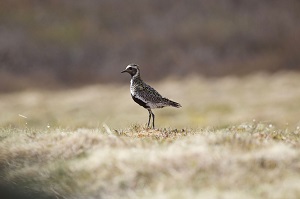 In 2024, the Company organised five expeditions to the north of the Krasnoyarsk Territory, where scientists explored the Kara subpopulation of polar bears, wild reindeer and rare bird species in Western Taymyr. The total length of the air routes was almost 17,000 kilometres and the water routes more than 3,000 kilometres.
In 2024, the Company organised five expeditions to the north of the Krasnoyarsk Territory, where scientists explored the Kara subpopulation of polar bears, wild reindeer and rare bird species in Western Taymyr. The total length of the air routes was almost 17,000 kilometres and the water routes more than 3,000 kilometres.
Scientists from IPEE RAS studied rare bird species at the mouth of the Yenisei River on the Brekhovsky Islands. This ornithological area of international importance is home to 60 species, including the peregrine falcon, barnacle goose, water rail and long-tailed duck, as well as the Siberian chiffchaff, red-winged and brown thrushes. The scientists have also observed tundra swans, geese, ducks and gulls moving through the area. This work will clarify the abundance and species composition of the bird populations.
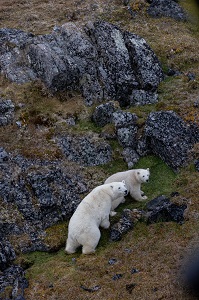 On the north-western coast of Taymyr and the islands of the Kara Sea, scientists conducted a polar bear census during the ice-free period. A total of 50 of these Arctic carnivores were recorded. To monitor seasonal migration, activity, maternity dens and feeding grounds, a number of animals were fitted with satellite radio tag transmitters. This was the first time in Russia that transmitters had been fitted to males as well as females. In 2025, scientists will conduct the first comprehensive aerial survey of the Kara polar bear subpopulation in Russia.
On the north-western coast of Taymyr and the islands of the Kara Sea, scientists conducted a polar bear census during the ice-free period. A total of 50 of these Arctic carnivores were recorded. To monitor seasonal migration, activity, maternity dens and feeding grounds, a number of animals were fitted with satellite radio tag transmitters. This was the first time in Russia that transmitters had been fitted to males as well as females. In 2025, scientists will conduct the first comprehensive aerial survey of the Kara polar bear subpopulation in Russia.
As part of the Tamura programme, Rosneft continued multi-year studies of the wild reindeer population in collaboration with SFU. During the expedition, the scientists travelled over 1,000 km along the Pyasina River and its major tributaries. The area covered by aerial observations totalled 360,000 km². A group of at least 100 reindeer was found on Sibiryakov Island. The crossing of a 12-kilometre stretch of water by a reindeer was also recorded, which is a unique case. During the expedition, the reindeer were fitted with satellite transmitters to enable remote monitoring of the population.
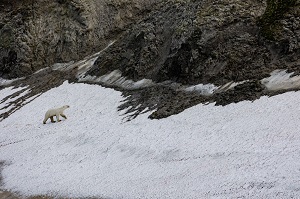 The scientists also discussed a unique project to create a genomic database of living organisms in the Russian Arctic. This is a joint project between Rosneft, Innopraktika, and the Biotechnology Campus. Priority work already underway includes assembling the highest-quality complete polar bear reference genome. The data obtained will allow us not only to assess the population’s status, but also to predict its numbers and develop conservation measures.
The scientists also discussed a unique project to create a genomic database of living organisms in the Russian Arctic. This is a joint project between Rosneft, Innopraktika, and the Biotechnology Campus. Priority work already underway includes assembling the highest-quality complete polar bear reference genome. The data obtained will allow us not only to assess the population’s status, but also to predict its numbers and develop conservation measures.
For reference
The protection and conservation of ecosystems and biodiversity is one of Rosneft’s key environmental goals until 2035. Rosneft implements the most ambitious programme for studying the Arctic region since Soviet times. Over 12 years, more than 50 expeditions have been carried out, during which scientists have studied the region’s hydrometeorological, geological and biological peculiarities. This has resulted in a unique body of information on the Arctic’s climate, nature and wildlife.
Department of Information and Advertising
Rosneft
November 20, 2024

-315xx70.png)

